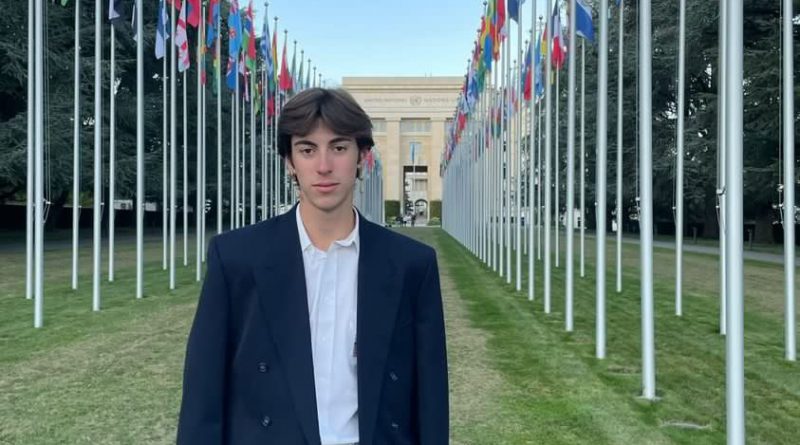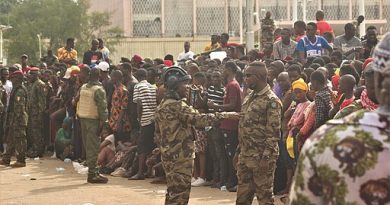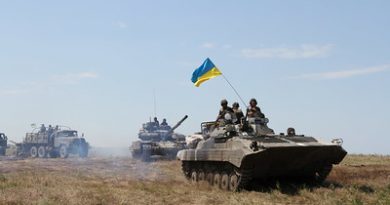Geneva, Switzerland Through the Eyes of a Student Studying Migration
Patrick Condon
Staff Writer
Sparkling lakeside storefronts, the crystal-clear lake, a cathedral-high jet of water; I return back to the capital of peace. As I descend south bound over the lake’s west bank, I look east to the tallest mountains in Europe. The Alps are world renowned: for skiing, beautiful chateaus, and even memorialized in chocolate. Their slopes were once carved by glaciers, which then pooled into the riviera we now call “Lac Leman.” This landscape expands all around me. It seems that many have been drawn to this place, seeking peace in the mountains or the lake.
They call Geneva the capital of peace because it harbors the European headquarters of the UN, as well as other high-level international organizations. The city pulls together a beautiful community of people from around the world. Yet, Geneva does not represent Switzerland in its ability to bring people together into a community. It represents a place of luxury, of beauty; a place where the world’s wealthiest can find peace away from their daily lives.
The image of Geneva I now have is vastly different from what I first perceived when I studied there, last semester. The bewildering beauty still grasps my attention, but only for some time. I lived there for just three and a half months, but I was very lucky to have been welcomed during that time. See, most people moving to Geneva won’t find a community. It is the most international place in Switzerland, yet it is unmistakably Swiss, with its luxury storefronts and lake clear-as-glass. I once noted that it felt like “I was living under the protection of a great mountain,” like Mount Olympus, an analogy dually fit for the landscape and its relationship with the Swiss people. There are restaurants in this small city of 200,000 people from nearly every country. Yet, Swiss law restricts work permits to a relatively small proportion of people, restricting much of the world from living there.
The good thing for me is work permits are much easier to attain for those in international organizations. I’ll hopefully be able to live there after I finish grad school, next September. Although, like many young UN professionals, I’ll likely be cast out to live in the French towns on the outskirts of the city. I’ve had a taste of this, regularly buying my groceries across the border. Though it hasn’t been without difficulty, as Switzerland has strict regulations on the quantity of non-Swiss products allowed to be brought into the country. When I think of this practice, I am not at all surprised; Switzerland has some of the strictest immigration laws in the world.
My studies in Geneva come with a great deal of irony: I study Mobilities, Migration, and Borders in the European country with the strictest immigration laws (only trailing behind Vatican City and Liechtenstein). This is something which I fear may impact my own perspective. As an American, I feel almost pulled towards living in a place with strict immigration laws. Yet, as a grad student studying migration, I am frightened that this is the goal we seek to attain: a haven for the rich.
One of the more shocking experiences I had in Geneva was the sighting of two luxury, foreign cars. While I don’t remember at all what type of cars they were, they both had license plates from cities I would not expect. I’ve been on many road trips in the U.S., seeing wildly different foreign plates, but seeing license plates from Moscow and Riyadh surprised me quite a bit. I first thought of the journey it took for those two cars to arrive in Geneva; but that journey means nothing to the purpose of those cars being in Geneva. In those moments, I realized the city was hardly attempting to cater towards a morally-just world. A city which openly welcomes war-hungry oligarchs shouldn’t appear so innocent. And yet, have I not also encountered the same thing at home?
There is a certain degree of general ignorance that seems to come with travelling abroad, particularly for Americans. Whether that comes about honestly or not, I noticed that others were far more aware of my culture than I knew of theirs. This is something commonly seen in American expats, but came off rather pointedly to me, a student studying migration. As I learned about the general international routes of migration as well as the experience of migrants themselves, I also learned about the constructed vanity of Swiss neutrality. To see and meet people from around the world, I perceived the place as inclusive. Yet, I mostly met people from the global north and very few individuals from poorer communities. As I go back to finish my graduate studies, I am relieved to have this clarity of Geneva. I am highly motivated to learn about and work towards a world with a more just system of migration, and so I worry that other countries view Switzerland, with its beauty and luxury, as the most desirable, inclusive place.
Back home in Cleveland, my community is faced with a similar daunting reality. It was constructed purposefully to separate communities, providing space for wealthy citizens to live together. Communities were physically separated to allow for a system more desirable for the rich. While Switzerland has reconciled with a similar fate, offering extensive social programs for its citizens, Cleveland, and much of the U.S., does not. This is what I have learned, seen, experienced, in my studies in Geneva so far. Perhaps I will leave Geneva after school, to learn from a place more welcome to migration and to the discussion of free movement.
Patrick Condon pictured in Geneva



